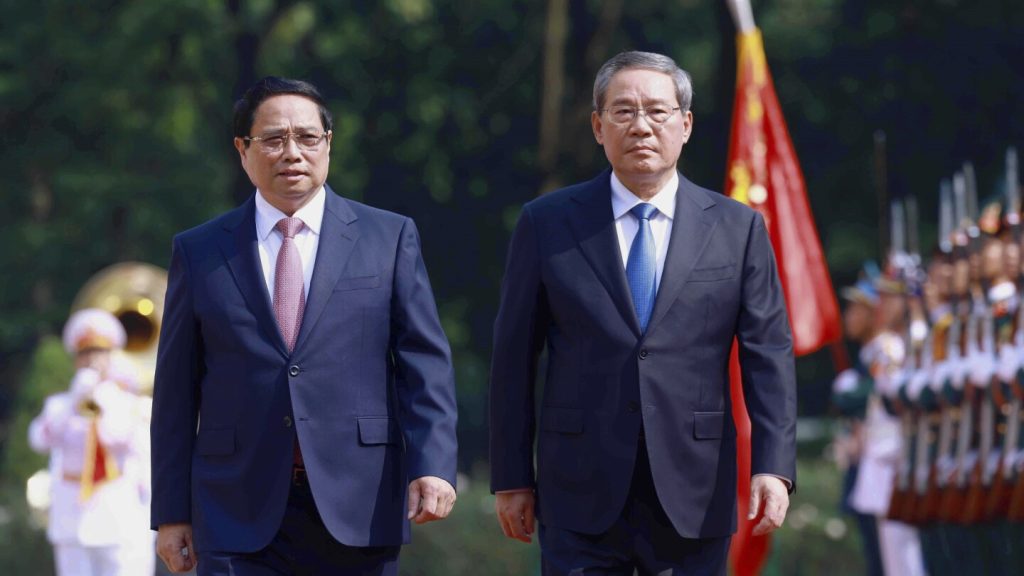China and Vietnam have agreed to collaborate on cross-border railway development and expand agricultural imports, according to reports from Vietnam’s official media. Premier Li Qiang visited Vietnam and pledged to open China’s market to high-quality fruits, seafood, and other Vietnamese products. With trade between the two countries reaching $172 billion in 2023, China is Vietnam’s largest trading partner and second-largest export market after the U.S. The relationship between the two countries was emphasized by Vietnam’s top leader, To Lam, who made China his first overseas visit after assuming his post last year.
During the visit, Vietnamese Prime Minister Pham Minh Chinh emphasized the importance of respecting each other’s legitimate rights and interests, resolving disputes peacefully, and addressing issues related to fishers and their vessels. Vietnam recently condemned China for an assault by Chinese law enforcement personnel that injured several Vietnamese fishers near the Paracel Islands in the South China Sea, which have been under China’s control since 1974. U.S. Secretary of State Antony Blinken expressed concerns about China’s activities in the region, which Beijing claims virtually in its entirety.
Chinh and Li agreed to deepen exchange and cooperation in diplomacy, national defense, and public security during their talks. They also witnessed the exchange of 10 cooperation agreements, including the establishment of a working group for cross-border economic cooperation zones. The agreements also included the implementation of QR-code cross-border payment services and the development of technical plans and feasibility studies to improve train connectivity between Vietnam and China. Chinh requested greater access for products like tropical fruits, meat, spiny lobster, and plant-based traditional medicines, to which Li expressed China’s readiness to resolve trade issues and work with Vietnam on quarantine and customs procedures.
The visit comes amidst increasing tensions in the South China Sea, with both China and Vietnam asserting their claims over territorial waters. Vietnam has been vocal about its concerns regarding China’s actions in the region, especially related to incidents involving Vietnamese fishers. Despite these challenges, both countries have demonstrated a willingness to work together on various economic and infrastructure projects, laying the groundwork for further cooperation in the future. With China being a significant trade partner for Vietnam, both countries have a vested interest in maintaining a stable relationship and addressing issues through dialogue and cooperation.
The agreements signed during Li’s visit highlight the potential for collaboration between China and Vietnam in various sectors, including transportation, agriculture, and technology. By expanding trade and infrastructure ties, both countries can benefit economically and strengthen their bilateral relations. As global geopolitical dynamics continue to evolve, cooperation between China and Vietnam could serve as a model for resolving disputes and promoting regional stability. The commitments made during the visit indicate a positive step towards enhancing mutual understanding and partnership between the two neighboring nations.


